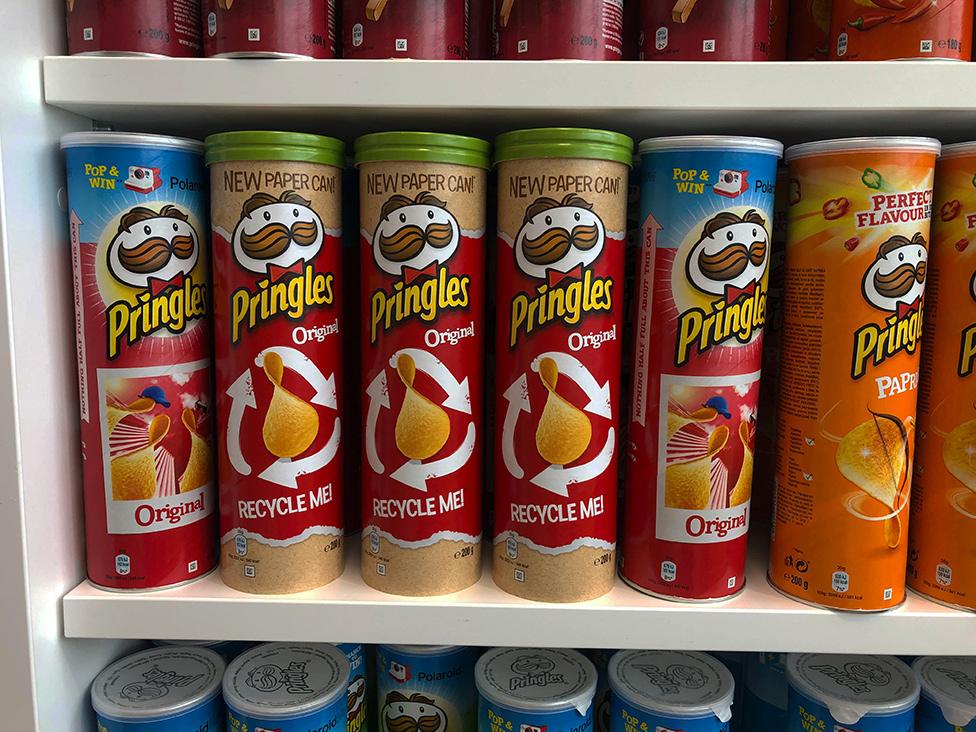Pringles tube tries to wake from 'recycling nightmare'
- Published

New designs are being trialled that still "pop" when they open
The distinctive Pringles tube is being re-designed after criticism that itās almost impossible to recycle.
The current container for the potato-based snack was condemned as a recyclerās nightmare.
It's a complex construction with a metal base, plastic cap, metal tear-off lid, and foil-lined cardboard sleeve.
The Recycling Association dubbed it the number one recycling villain ā along with the Lucozade Sports bottle.
Now Pringles' maker Kellogg's is trialling a simpler can ā although experts say itās not a full solution.
The existing version is particularly troublesome because it combines so many different materials
Roger Harrabin considers the Pringles recycling challenge
Some 90% of the new can is paper. Around 10% is a polyal (plastic) barrier that seals the interior to protect the food against oxygen and moisture which would damage the taste.
But how about the lid? Well, two options are on trial in some Tesco stores ā a recyclable plastic lid and a recyclable paper lid. Kellogg's says these lids will still produce the distinctive "pop" associated with the product.
Simon Ellin from the Recycling Association told “óĻó“«Ć½ News: "The Pringles tube has been a bastion of bad design from the recyclers' point of view.
"This new version is an improvement, and we broadly welcome it.
"But, frankly, if they are going to stick to a plastic lid thatāll just add to problems with plastic pollution - people on picnics leave them behind and they find their way into streams and the sea. That plastic lid has got to go."
The Recycling Association said many manufacturers needed to rethink their packaging
Kellogg's says its packaging must be airtight, or the food inside will be wasted.
The new designs have been 12 months in the making. Pringles have a shelf life of 15 months - and three million cans are made across Europe every day.
Mr Ellin said the polyal-coated card might be recyclable but the product would need to be tested in recycling mills.
And what of the much-criticised Lucozade Sports bottle? Mr Ellin said its unchanged basic design was still a big problem, as machines found it hard to differentiate the plastic in the bottle and the plastic that makes up its outer sleeve.
He called on the makers, Suntory, to reduce the size of the external sleeve, as it has with the new Ribena bottle.
The firm said it was planning to do this for the new year.
Suntory said it was working on a new material made entirely from seaweed extract that was 100% edible, biodegradable and compostable.
Environmentalists say that trivial changes like these won't solve the world's ecological crises - but on a large scale they'll make a contribution.
Follow Roger on Twitter